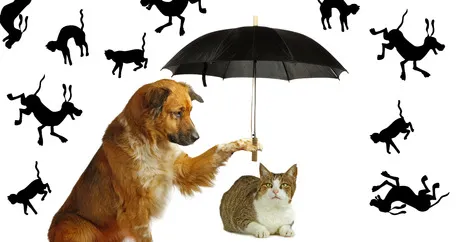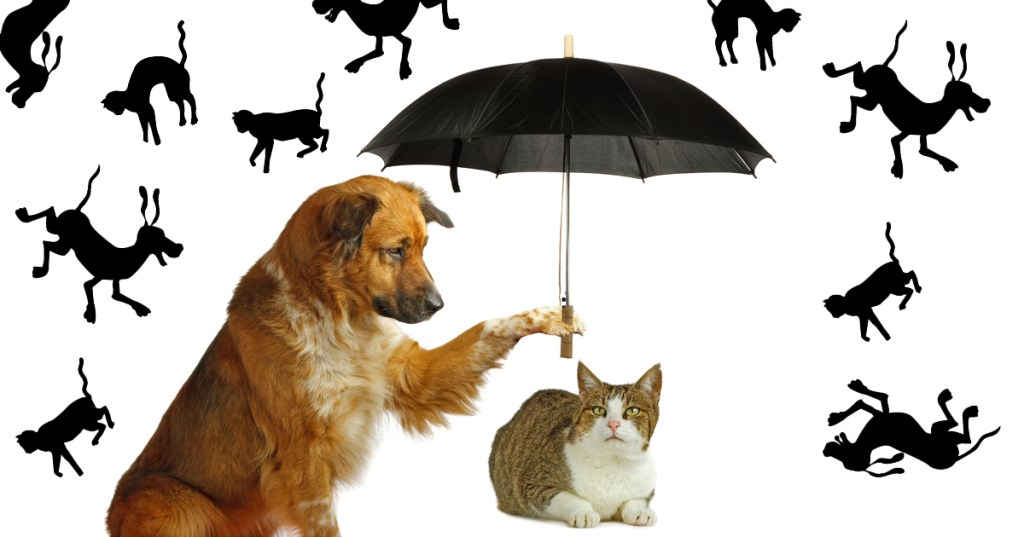Being our best friends, it’s no wonder our canine pals have made their way into our everyday vernacular. But did you ever wonder where these idioms come from? The origins of these phrases can be scientific, superstitious, or downright gruesome.
1. “The dog days of summer”
You’re sweaty, thirsty, and avoiding leather like it’s made of glue. They’re the dog days, and we’ve called them that since ancient Rome. Romans attributed hot weather of summer to Sirius, the “dog star” in the constellation Canis Major (which is a dog). The dog days referred to the time of year when Sirius rose with the sun, though not any more due to movement of Earth’s axis. Still, the expression sticks like skin to hot leather.
2. “Raining cats and dogs”

The origins of this weather-related phrase aren’t clear. One theory is dogs were associated with Odin, Norse god of storms, and cats were associated with witches who rode the wind. Alternatively, the phrase may come from the Old English “catadupe,” meaning “waterfall.” Either way, it’s a relief the phrase isn’t based on literal precipitation of mammals.
3. “Sick as a dog”

You might guess where this saying comes from. Some dogs eat anything. One dog even ate my homework (I swear, Mrs. Keller!). Dogs eat things they shouldn’t, and those things cause tummy troubles. That’s why this phrase often refers to someone who’s sick to the stomach. Another possible origin is that animals like rats, bats, bugs, and even dogs carry plagues in cramped urban areas. If that’s the case, you may find a cure in some hair of the dog that bit you.
4. “Hair of the dog that bit you”

Saturday night was rough, and Sunday calls for a remedy. This idiom comes from an old cure for treating the bite from a rabid dog by placing hair from that dog upon the wound. A hangover isn’t rabies, but it does call for a Bloody Mary — hold the dog hair.
5. “Tail wagging the dog”

Mostly used in reference to politicians and movies starring Robert De Niro, this phrase describes when someone draws attention from an important issue to a less important one. It appeared in the U.S. in 1872 in reference to, well, politics. It comes from the saying, “a dog is smarter than its tail”…though if you’ve been near a Retriever, you know the tail has a mind of its own.
6. “Every dog has its day”

This is the most uplifting idiom of the bunch, but its origins are dark. In English, one of its earliest uses comes from Queen Elizabeth I. Shakespeare also used it in his play Hamlet. The expression dates back to the Greek biographer Plutarch, who wrote, “Even a dog gets his revenge.” It may refer to the death of the playwright Euripides, who was killed when a rival set dogs on him. Today the phrase has a positive connotation, which proves this idiom, like every dog, has its day.









